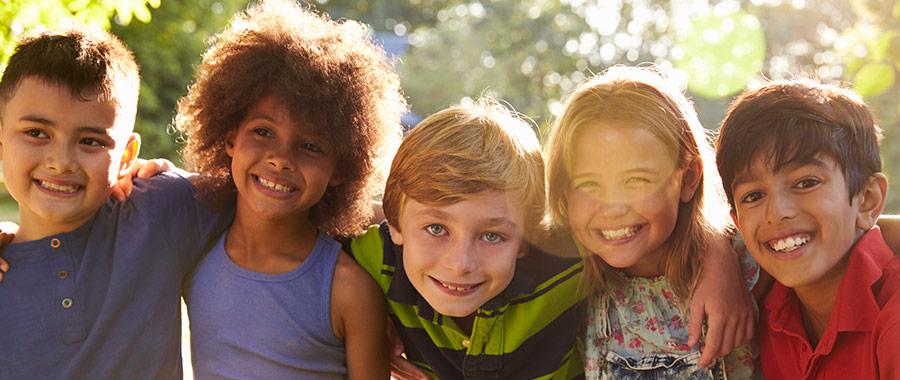Racial bias is an insidious ailment that transcends mere prejudicial attitudes, oftentimes infiltrating the psyche even at an early age. The Bahá’í teachings elucidate the necessity of addressing such biases within children through profound principles of unity and equality. This discourse aims to delineate a robust guideline for parents, educators, and community leaders on how to effectively confront and mitigate racial biases in young people. The approach is multifaceted, encompassing psychological insights, pedagogical strategies, and spiritual imperatives derived from the Bahá’í ethos.
Firstly, it is imperative to understand the roots of racial bias in children. Cognitive development theories suggest that children are not born with inherent prejudices; rather, they learn them through observation and socialization. Thus, the household and educational environments become crucial battlegrounds for the rectification of such biases. It is essential to foster an atmosphere where diversity is not merely tolerated but celebrated. Children must perceive differences in race, culture, and ethnicity as enriching aspects of human existence.
One method for combating early racial bias is through the cultivation of empathy. Parents can encourage empathy by engaging children in diverse narratives and experiences. Storytelling is a powerful tool; it allows children to visualize and emotionally connect with individuals different from themselves. Selecting children’s literature that features protagonists from varied racial and cultural backgrounds can effectively dismantle preconceptions and build understanding. Discussions should follow these narratives, prompting children to reflect on their feelings, assumptions, and the implications of their learnings. Eliciting responses fosters critical thinking, allowing children to process information beyond superficial interpretations.
Moreover, incorporating multicultural education within curriculums is of paramount importance. Schools should strive to include historical, scientific, and artistic contributions from a wide array of cultures. Such an initiative not only provides a comprehensive lens through which children can understand the world but also reinforces the principles of the oneness of mankind, which are central to Bahá’í teachings. Lessons should actively challenge stereotypes and present counter-narratives that celebrate achievements from all racial groups, fostering a sense of shared humanity.
In addition to diverse content, interactive experiences can further buffer against racial bias. Programs that immerse children in diverse communities—through service projects, cultural exchanges, or joint activities—can profoundly impact their worldviews. Encounters with peers from different backgrounds enable children to create personal relationships, challenging preconceived notions and dismantling barriers. These interactions should be guided by adults who can facilitate dialogues surrounding their experiences, promoting an environment of inclusivity and mutual respect.
Critical to this process is the role of the caregiver or educator in modeling behavior. Adults must exhibit non-discriminatory attitudes in their interactions, as children tend to emulate the behaviors exhibited by authority figures. It is essential for adults to maintain an openness to diversity and express appreciation for differences. This requires self-reflection and, often, a commitment to personally confront any biases that may linger within. Understanding the influences of societal narratives can empower adults to dismantle prejudices effectively.
Furthermore, instilling a strong sense of justice and moral responsibility is vital. Engaging children in conversations about fairness, equity, and injustice can help them contextualize racial bias within broader societal frameworks. This discourse should extend beyond discussions of right and wrong; it must involve illustrations of real-world implications, encouraging children to think critically and act courageously when confronted with instances of discrimination. Initiatives such as role-playing scenarios can be tremendously effective, enabling children to navigate challenges stemming from biases, thereby preparing them for real-life encounters.
It is also worth noting the importance of emotional intelligence in the battle against racial bias. Children should be taught to recognize and articulate their feelings as well as the emotions of those around them. Acknowledging feelings of discomfort or confusion when encountering diversity can be a vital part of their educational journey. As children’s emotional lexicons expand, their ability to empathize with others similarly broadens, fostering a deeper understanding of the multifaceted nature of racial dynamics.
In tandem with emotional literacy, it is crucial to emphasize resilience. Children must be equipped to grapple with difficult conversations about race and bias without becoming overwhelmed. Providing them with a toolkit of strategies to cope with discomfort—such as seeking understanding through questions or respectfully challenging biased remarks—can nurture a more resilient mindset that does not shy away from uncomfortable truths.
The Bahá’í principles advocate for the elimination of racial prejudice as a fundamental prerequisite for universal peace. By nurturing these ideals within the fabric of early childhood development, we engender a generation that inherently values unity and equity. This necessitates a commitment from all stakeholders—parents, educators, and community leaders—to adopt practices that dismantle rather than perpetuate racial biases in children.
In conclusion, addressing racial bias in children through the lens of Bahá’í teachings is a profound responsibility that individuals and communities must undertake with diligence and fervor. By fostering empathy, ensuring diverse educational experiences, modeling inclusive behaviors, cultivating a sense of justice, and enhancing emotional intelligence, we can empower a new generation to reject racial prejudice in all its forms. The consequence of such endeavors extends beyond the individual, promising a more harmonious, unified society imbued with the ideals of equity and justice.
